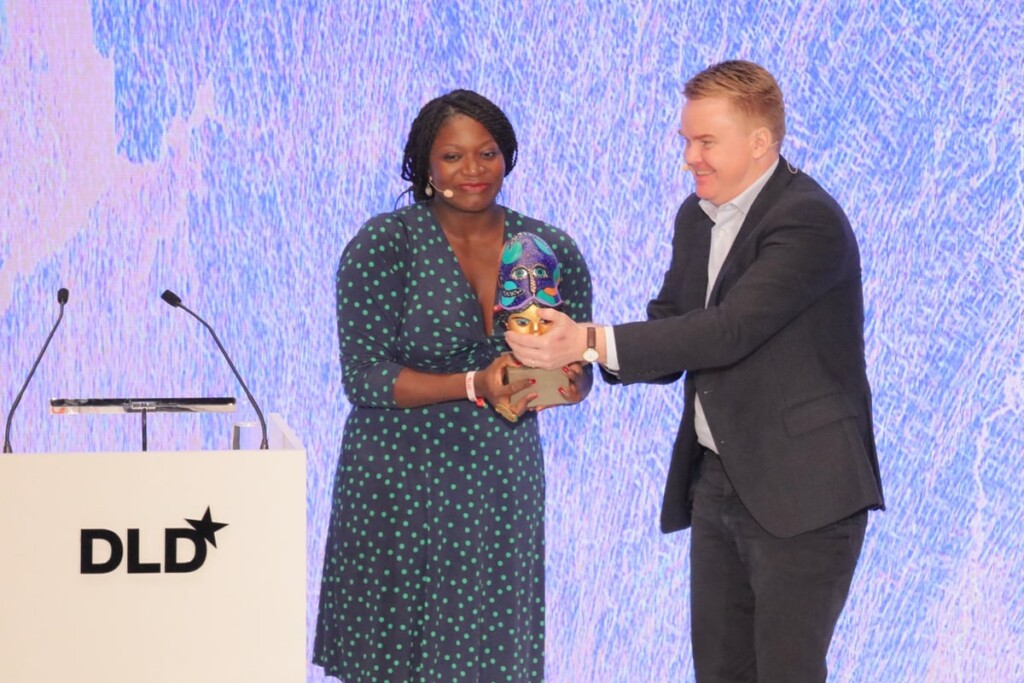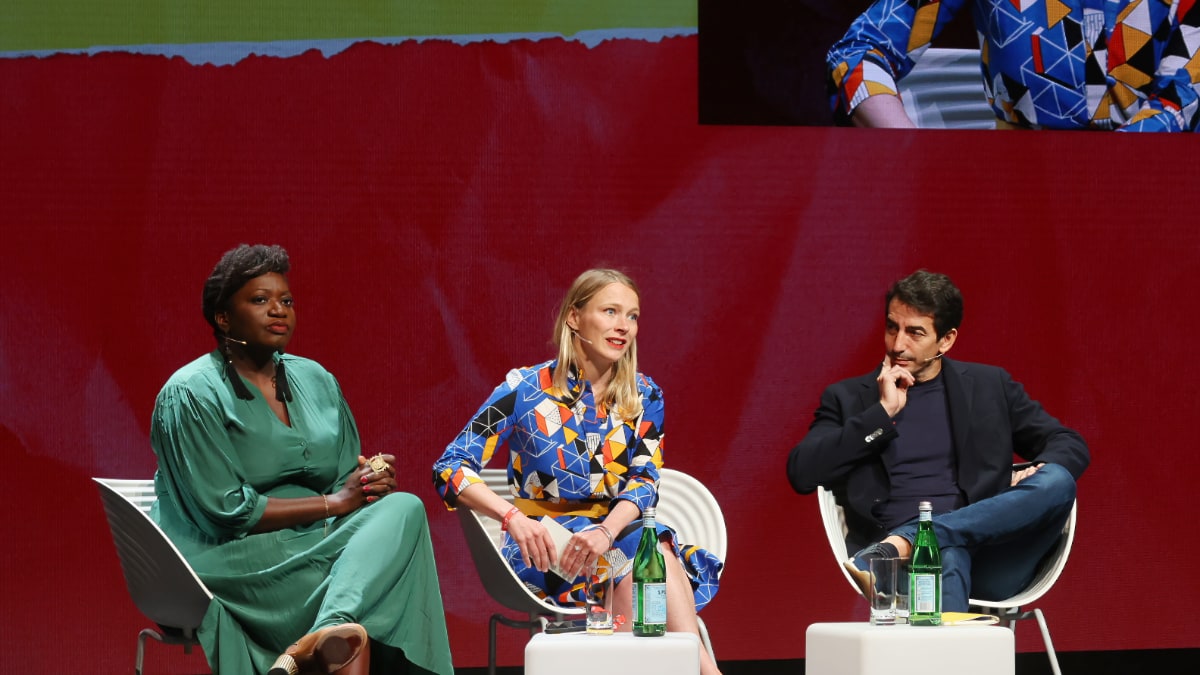
Africa Next: The Continent of Opportunities
From business to health, mobility and education: Digital services give founders and investors the chance to advance an entire continent – and benefit from it.
Tech investors took a long time to discover the potential of the world’s second largest continent. For years, money flowing into the digital economy seemed to bypass much of Africa – despite its young, tech-savvy population of 1.2 billion people.
But the tide is finally turning. In 2021, African technology startups raised a total of $5.2 billion, according to Partech Partners, an investment platform. This is almost 10 times the amount that founders received in 2017, illustrating how fast the African tech ecosystem is growing.
Mobile apps for banking, tele health or e-commerce are booming, connecting millions of people in countries that lack a traditional infrastructure for essential services.
“The good news is, in Africa, you don’t have to choose between doing well and doing good – these challenges are actually opportunities”, investor Fatoumata Bâ observed in a DLD22 panel discussion with Stéphan-Éloïse Gras (Digital Africa) and Khaled Ben Jilani (AfricInvest).

Early recognition: At DLD Munich 2019, Fatoumata Bâ received the Aenne Burda Award from Martin Weiss, today’s CEO of Hubert Burda Media, for her pioneering role in the African digital economy.
Bâ’s venture capital firm Janngo Capital recently raised €34 million of a new €60 million fund targeted at startups that develop leapfrog technologies and help Africa reach sustainable development goals.
As Founder & CEO in Ivory Coast, Bâ helped grow the e-commerce platform Jumia into Africa’s first unicorn. At DLD Munich 2019, she received the Aenne Burda Award for her achievements.
Bâ is well aware that, despite much progress, many investors continue to overlook her continent. “Africa today represents 15 percent of the world’s population”, she says, “but we only attract 2 percent of the VC funding.”

Fatoumata Bâ
Founder, Janngo Capital
“Invest now! The train is about to leave the station.”
The main reason is a disconnect between risk and opportunities, she believes.
“The risk perceived is much higher than the real risk”, she tells DLD in an interview. “And there is a misunderstanding of the scale of the opportunities. Africa is going to have 2.5 billion inhabitants in less than 30 years, which means it’s probably going to be one of the largest markets.”
Her message to those who don’t want to miss out is clear: “Invest now! The train is about to leave the station.”
Which opportunities do you see for founders and investors in Africa?
One of them is, we will have to find ways to accelerate and expand access to essential services such as healthcare, education, financial services for the many – and platforms that do that are extremely successful. For instance, in Kenya, 50 percent of the country’s GDP goes through mobile wallets, mobile financial services, such as M-Pesa. So it’s really something that is even more vibrant than any other ecosystem in the world, including Silicon Valley.
Where can innovation have the biggest impact?
In Africa, you have lots of SMEs, small and medium enterprises. In Cote d’Ivoire, for instance, they make up 98 percent of the companies – and most importantly, they employ 90 percent of the people. So SMEs are really the backbone of the economy, and tech can help them have a better access to market. In Nigeria, for instance, we invested in a company called Sabi. Less than 18 months after its launch, it is now helping more than 200,000 small retailers in Nigeria source more than $200 million worth of groceries, with cost reduction and improved efficiency.
Why do you emphasize the social good in your investment strategy?
The way I see it is: we have a both an opportunity and responsibility to have another model when it comes to technology and venture capital. In Africa, we need to find a way to use technology to bridge inequalities. And that’s really what I’m passionate about. I hope to see more and more African entrepreneurs building platforms that benefit the many, and drive inclusion while having a strong value creation economically. Because they need to be viable, they need to be sustainable economically. But also tackle some social issues and some environmental issues that their communities are facing firsthand.
Which role does gender equality play in this context?
56 percent of our portfolio is female-led, which is very important. Not only is it close to my heart but African women are known to be the most entrepreneurial globally. They have a total entrepreneurship activity rate of 26 percent, yet they are facing a $42 billion funding gap. And if we’re funding them we will add an extra $300 billion in GDP, which would be a 10 percent increase. So I think there are challenges but I also see lots of opportunities in funding the African startup scene.
What can the world learn from African entrepreneurs?
I do believe that frugality drives innovation. If you look at fintech adoption in Africa, today this is massive. Why did it start this way? Because you only have bank penetration rates between 20 and 60 percent, depending on the countries. Which means that you don’t have a market if you don’t find a way to give people access to what they need through a mobile phone. And this can be education, it can be healthcare, it can even be electricity. So I think the challenge first, and the frugality first, drives innovation.

Fatoumata Bâ
Founder, Janngo Capital
“What we see is reverse innovation… because Africa is a laboratory of innovation.”
How does that result in products that change the entire world?
Let’s take the example of a French company called Orange, one of the leading telcos worldwide. It’s because they saw the success of mobile wallets in Africa that they created Orange Money, which is extremely successful in Africa. And from that, they built Orange Banque in France, which is now their banking and financial arm.
So what we see is actually reverse innovation. People tend to believe that they will come to Africa and apply Western innovation to Africa. But because Africa is a laboratory of innovation, and especially of frugal innovation, you have some very creative business models that solve critical issues and can be beneficial to the rest of the world.
Do you feel that your own success story can serve as an example for others?
Yes, it’s very important, actually. Number one, we need to attract more funding, but we can also inspire other entrepreneurs. Because if I take my personal case, I’m in my 30s, I’m female, I’m Francophone, I come from Senegal. So the odds of success were very, very small. Because when you look at the numbers, between 70 and 90 percent of the funding goes to four countries, which are Nigeria, Egypt, Kenya and South Africa. Most of the funding goes to fintech or energy, and most of the funding goes to late-stage VC, as opposed to early-stage VC. And I think my example shows that anything is possible.


